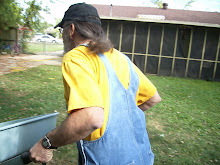On the tenth day of Tishri, much ,if not all, of Israel gathered at Ramah. A host of people representing each of the twelve tribes was present, each man, woman and child having fasted since sunset of the previous day. Ramah sat upon a low flat hill in the central highlands and the plateau around the town was sprinkled with the colors of a multitude of tents. At the outer edge of the village stood the Tabernacle of the LORD, prominent with its covering of red-dyed skins.
Samuel stepped to the altar clad in a simple linen garment. An awed hush fell upon the crowd. The sacrificial bull had been offered up to cleanse the priests and now a goat was brought forward. Eleazar stood in the congregation among the clan of Barak, his adopted family. Next to him stood a young cousin of Shammah, one of the hero-worshipping boys of the village. The boy, only eight, had never seen this ritual performed.
“What does he do now?” asked the youngster.
Eleazar took a knee beside him and spoke into his ear.
“The priest offers the sacrifice for the sins of the people.”
“But why must he kill the goat?”
“Because God knows that we are fallen creatures and unable to do all that he requires of us. The sacrifice is a symbol whereby the sentence of death passed upon Adam and Eve and all their descendants is carried out and our relationship with a Holy God is restored.”
“But how can this make God love us?”
Eleazar smiled. He himself had been a mere lad of ten the last time this rite had been performed before Israel. He remembered that day and his father speaking to him in explanation, much as he spoke to this youngster beside him.
“We demonstrate our love for God in our obedience to His commands, of which this sacrifice is one. By observing this rite, we express our love and our willingness to heed God’s word, though we often fail. Do you understand?”
“I know that I sometimes disobey my mother.”
“But you love her very much, do you not?”
“Yes, I am sad when I displease her.”
“Does she cast you out of your home when you displease her?” Eleazar asked with a smile. The youngster’s eyes widened with an expression of shock.
“No! She loves me.”
“Exactly so. And you love her very much and seek with all your heart to obey her?”
“Yes.”
“So we also attempt to please God in all that we do and honor the covenant He made with our forefathers.”
“I know. Abraham, Isaac, and Jacob.”
“You are right.” A hush fell across the vast gathering as Samuel entered into the Tent of Meeting. In the very back of the tabernacle was the Most Holy Place containing the Ark of the Covenant. There Samuel would sprinkle the blood from the sacrifices to atone for the sin of the nation.
His task accomplished, Samuel emerged from the tent and placed his hands upon the head of the scapegoat which was presented to him before the congregation of Israel. His voice rang out.
“Hear me, O Mighty God of our fathers. We have sinned in your sight. Yet, in Your mercy, You have provided the necessary means of atonement through the blood of these sacrifices. May the sin of your people Israel be laid upon this animal and driven far from us that we might be restored to your fellowship.”
The handler led the scapegoat outside Ramah to be driven into the hills west of the town. The sins of Israel would thus be removed far from them, and from God’s sight.
Subscribe to:
Post Comments (Atom)

No comments:
Post a Comment